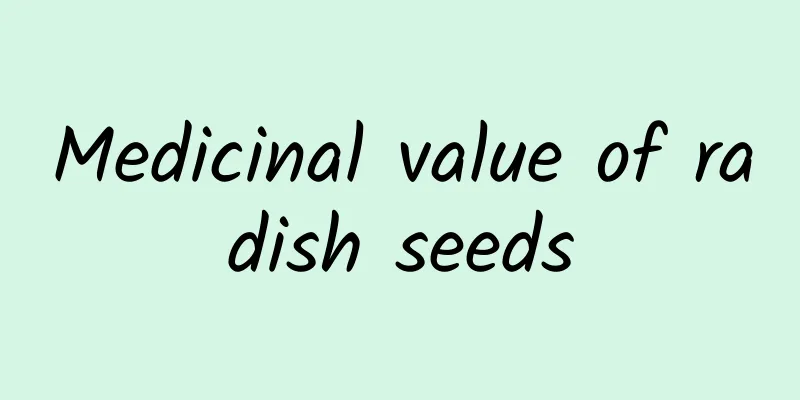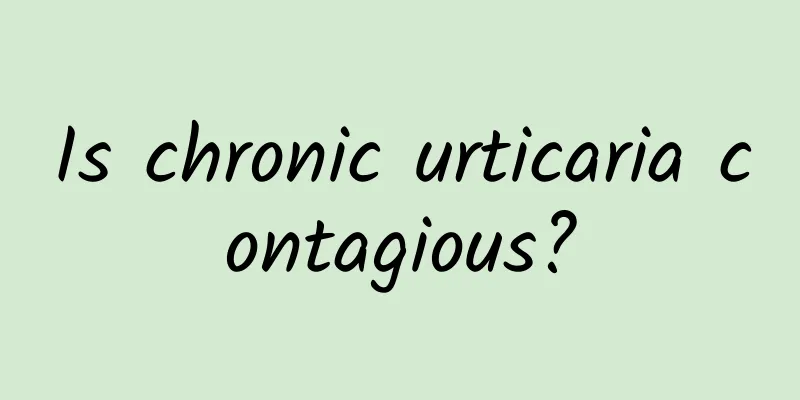Medicinal value of radish seeds

|
Birth, aging, illness and death are the life processes that everyone has to go through, no one is an exception. Some diseases can be cured easily, but some are not so easy. There are thousands of kinds of medicines that can be used to treat diseases. Each medicine has its own unique medicinal properties, and different medicines are used to treat different diseases. It is also possible that one medicine can treat multiple diseases. As for what kind of disease to treat with what kind of medicine, only doctors know clearly. Speaking of radish seeds, many people are definitely not aware of this. This is a special medical term, but it is actually a common species that everyone knows. It has another name, radish seeds, which is the seeds of white radish. Now everyone should know what this is. 1. Effect of anti-pathogenic microorganisms: Radish seed water extract has significant inhibitory effect on Staphylococcus and Escherichia coli, and the water extract also has different degrees of inhibitory effect on Trichophyton concentricum, Trichophyton schrenckii, Microsporum audouinii, Microsporum ferrugineum, Microsporum woolly and Nocardia asteroides. Radish extract at a concentration of 1 mg/ml has significant inhibitory effect on a variety of bacteria in vitro, and the MICs for Staphylococcus, Shigella dysenteriae, Salmonella typhi and Escherichia coli are 40, 125, 125 and 200 mcg/ml respectively. 2. Detoxification effect: Radish extract has a significant detoxification effect when mixed with bacterial exotoxins in vitro. When diluted to 1:200, it can neutralize 5 lethal doses of tetanus toxin, 1:500 can neutralize 4 lethal doses of diphtheria toxin, and when diluted to 1:1600, it can still reduce the skin necrosis effect of diphtheria toxin. 3. Antihypertensive effect: Radish seed water extract has a significant antihypertensive effect. For anesthetized rabbits, cats and dogs, intravenous injection can cause the blood pressure of animals to drop. The results of the study on the effect of radish seeds on acute hypoxic pulmonary hypertension in rabbits showed that intravenous injection of radish seed injection (1ml is equivalent to 1g of raw drug) at a dose of 0.3-1.2ml/kg can significantly reduce experimental pulmonary hypertension and significantly reduce systemic arterial pressure. The intensity of radish seeds in reducing pulmonary and systemic arterial pressure is basically the same as that of phentolamine. Increasing the dose of radish seeds failed to increase the intensity of reducing pulmonary and systemic arterial pressure, but only prolonged the blood pressure reduction time, which was significantly longer than phentolamine. Continuous micro-intravenous injection can inhibit pulmonary hypertension caused by acute hypoxia and reduce the side effects of reducing systemic arterial pressure. Don't underestimate the usefulness of radish seeds. As mentioned above, radish seeds have a lot of medicinal value. Not to mention radish seeds, even the white radish that we often eat is of immeasurable benefit to the body. White radish is often called native ginseng. Just from this sentence, we can know that the role of white radish is not small. So we can eat it often. |
<<: Side effects of radish seeds
Recommend
Can I take a shower before vaccination?
Vaccination is what we call injections in spoken ...
Symptoms of chronic pharyngitis
Pharyngitis is a common disease in life, especial...
What is stool retention? Chinese medicine massage method to relieve constipation
Stool retention generally refers to feces that ha...
Eucommia pictures and effects
In our daily life, Eucommia ulmoides is a common ...
What is the treatment for malignant pleural effusion?
Malignant pleural effusion is mostly a malignant ...
Will eating dragon fruit cause diarrhea?
The nutritional value of pitaya is relatively hig...
Is red ginseng hot or cold?
Chinese medicine talks about the four properties ...
How to treat purpura nephritis? Teach you the commonly used clinical treatment methods
Purpura nephritis is one of the common types of n...
About the small bumps near the anus-anal herpes is the most terrible
With the prosperity of night entertainment, the l...
What are the common drugs for treating epilepsy?
Nowadays, many patients often experience symptoms...
Don't drink honey water if you have bean poisoning. Understanding the cause of poisoning is the key
I believe everyone has eaten beans in life, and w...
How to detoxify your face at home?
When people eat whole grains, they are also affec...
Symptoms of bronchopneumonia
Pneumonia is clinically divided into many differe...
Do you have dull stomach pain two weeks into your pregnancy?
For women who are pregnant for the first time, si...
Should benign breast tumors be removed?
In recent years, the incidence of breast tumors i...









